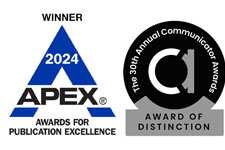Notice
Artificial Intelligence and the Right-to-Know Law: Be Aware of the Risks
July 17th, 2025The Office of Open Records (OOR) warns that while Artificial Intelligence (AI) tools are being used more frequently in Right-to-Know Law (RTKL) matters, they are unreliable and often generate false or misleading legal content—commonly referred to as “AI hallucinations.” These errors include fake case citations, misquoted legal decisions, and incorrect summaries of legal precedent.
Submitting AI-generated content without verifying its accuracy can result in sanctions, fines, attorney’s fees, or even criminal charges under Pennsylvania law. OOR Appeals Officers may also reject filings containing false or duplicative AI-generated material.
Parties are reminded that AI should not replace legal counsel and that any legal content submitted must be independently verified. Agency Open-Records Officers (AOROs) should consult their solicitors if they encounter questionable legal citations in RTKL requests.
Key Points:
- AI "Hallucinations": Artificial Intelligence can generate incorrect or fictional legal information, including fake or misquoted case law, nonexistent legal citations or inaccurate summaries of court decisions.
- Consequences of Misuse: Legal sanctions, including fines and court-ordered attorney’s fees, rejection of appeals by OOR if AI-generated content is false or repetitive and possible criminal penalties under Pennsylvania law.
- OOR Recommendations: Do not rely on AI for legal analysis or citations without verification and Always independently verify any legal content generated by AI tools. Agencies and requesters should consult legal counsel before using or responding to AI-based RTKL filings.
- Best Practice for AOROs: Scrutinize any legal arguments submitted in RTKL requests and contact your solicitor if legal claims appear questionable or unfamiliar.
For more information click here.






